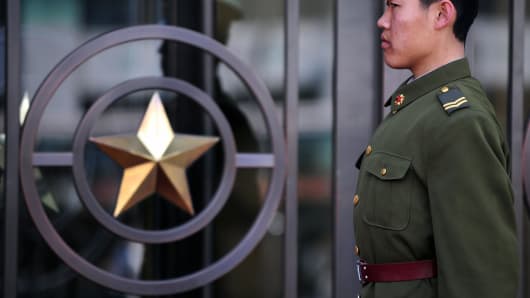"The Defense Ministry and China Military Online websites have faced a serious threat from hacking attacks since they were established, and the number of hacks has risen steadily in recent years," said ministry spokesman Geng Yansheng.
"According to the IP addresses, the Defense Ministry and China Military Online websites were, in 2012, hacked on average from overseas 144,000 times a month, of which attacks from the U.S. accounted for 62.9 percent," he said.
The comments were made at a monthly news conference, which foreign reporters are not allowed to attend, and posted on the ministry's website.
(Read More: A New Cold War, in Cyberspace, Tests US Ties to China)
Geng said he had noted reports that the United States planned to expand its cyber-warfare capability but that they were unhelpful to increasing international cooperation towards fighting hacking.
"We hope that the U.S. side can explain and clarify this."
The U.S. security company, Mandiant, identified the People's Liberation Army's Shanghai-based Unit 61398 as the most likely driving force behind the hacking. Mandiant said it believed the unit had carried out "sustained" attacks on a wide range of industries.
The hacking dispute adds to diplomatic tension between China and the United States, already strained by Chinese suspicion about Washington's "pivot" back to Asia and arguments over issues from trade to human rights.


